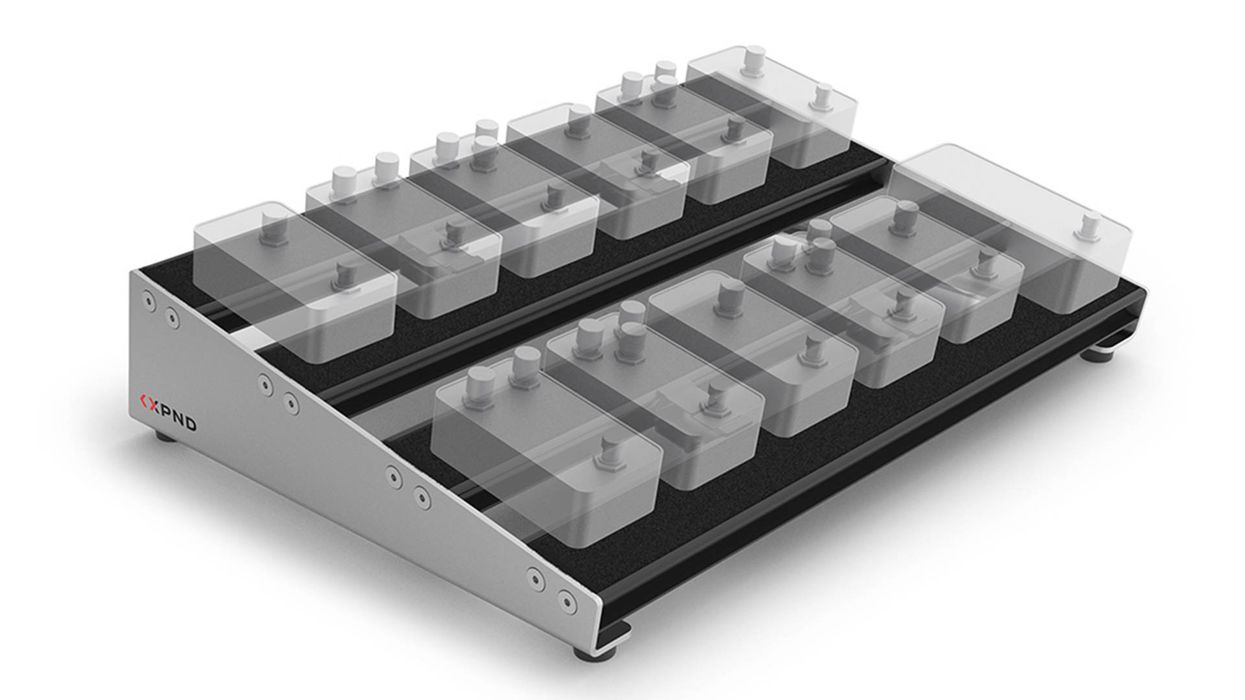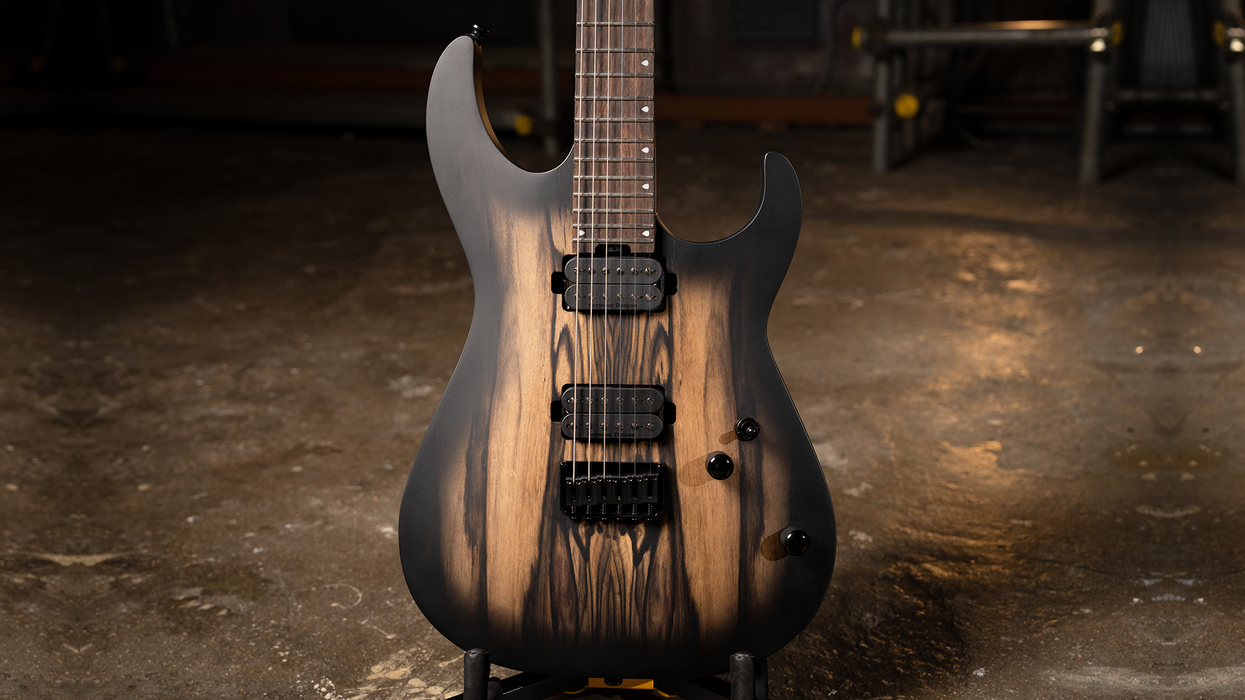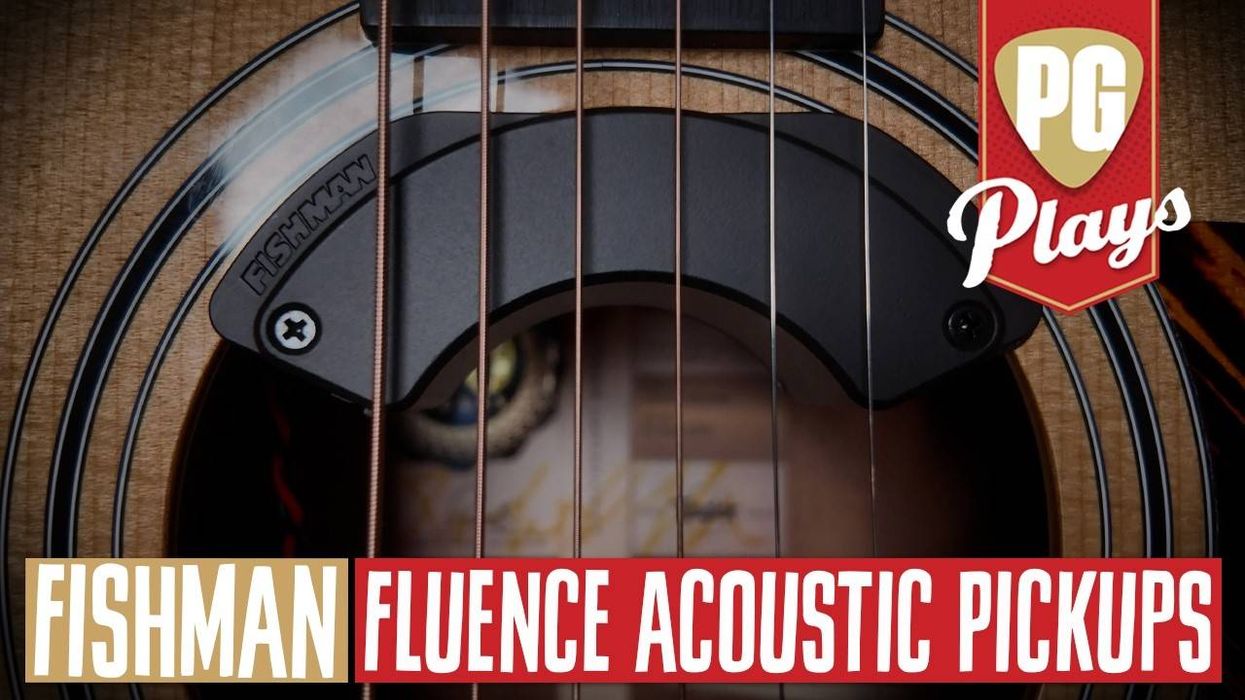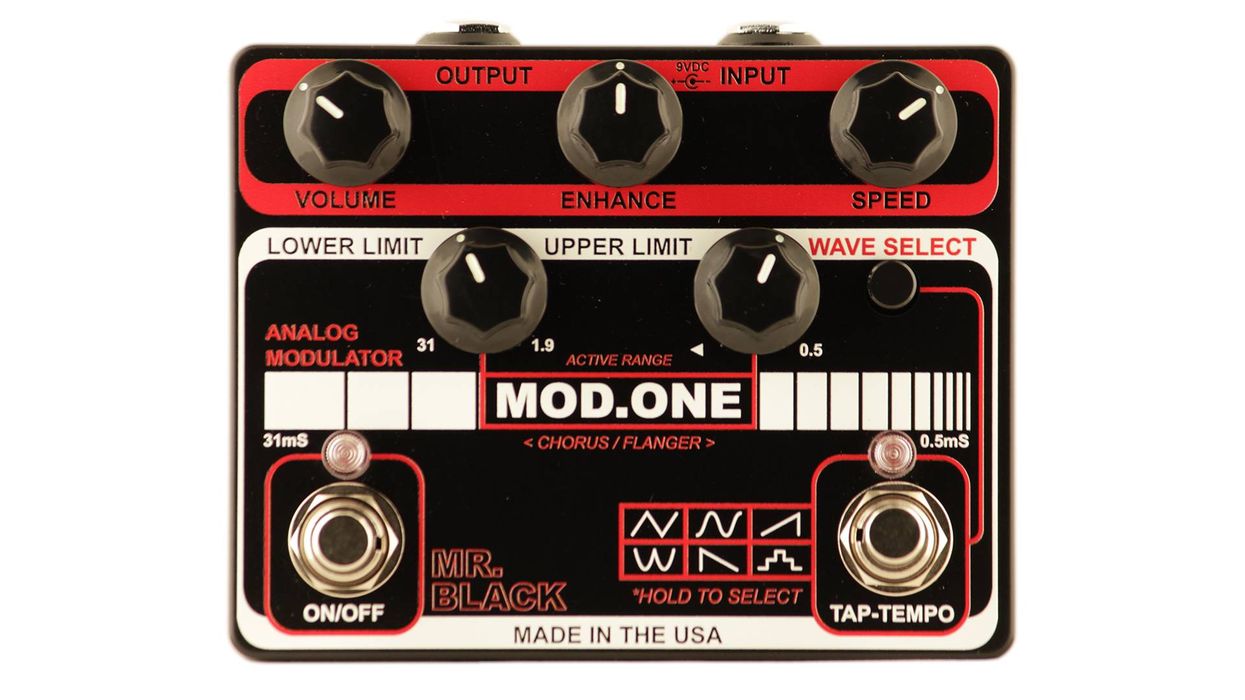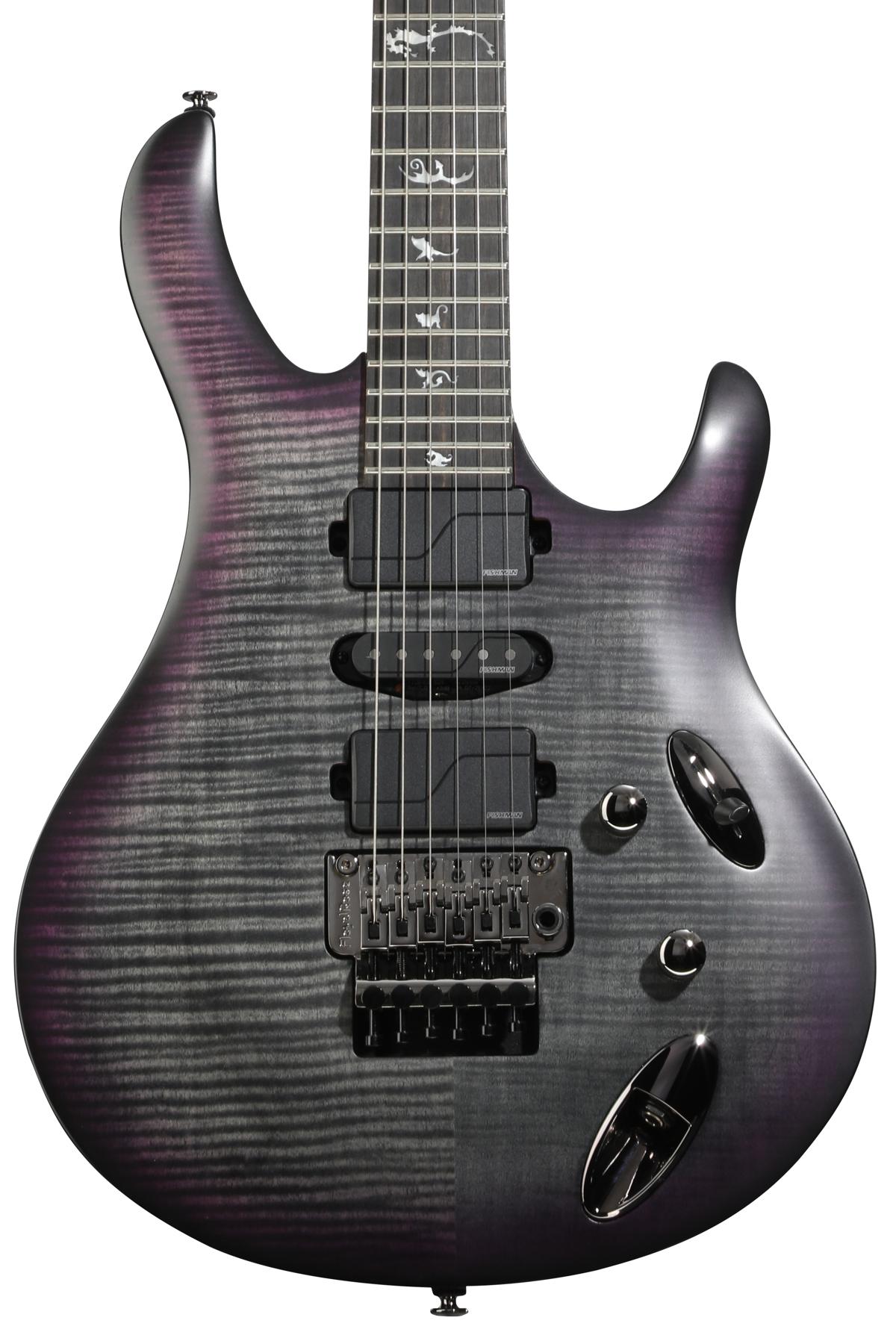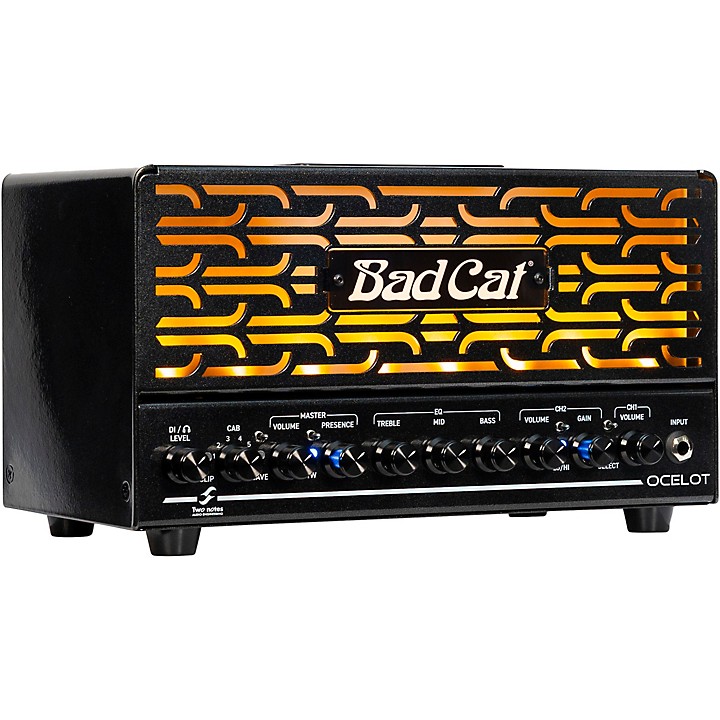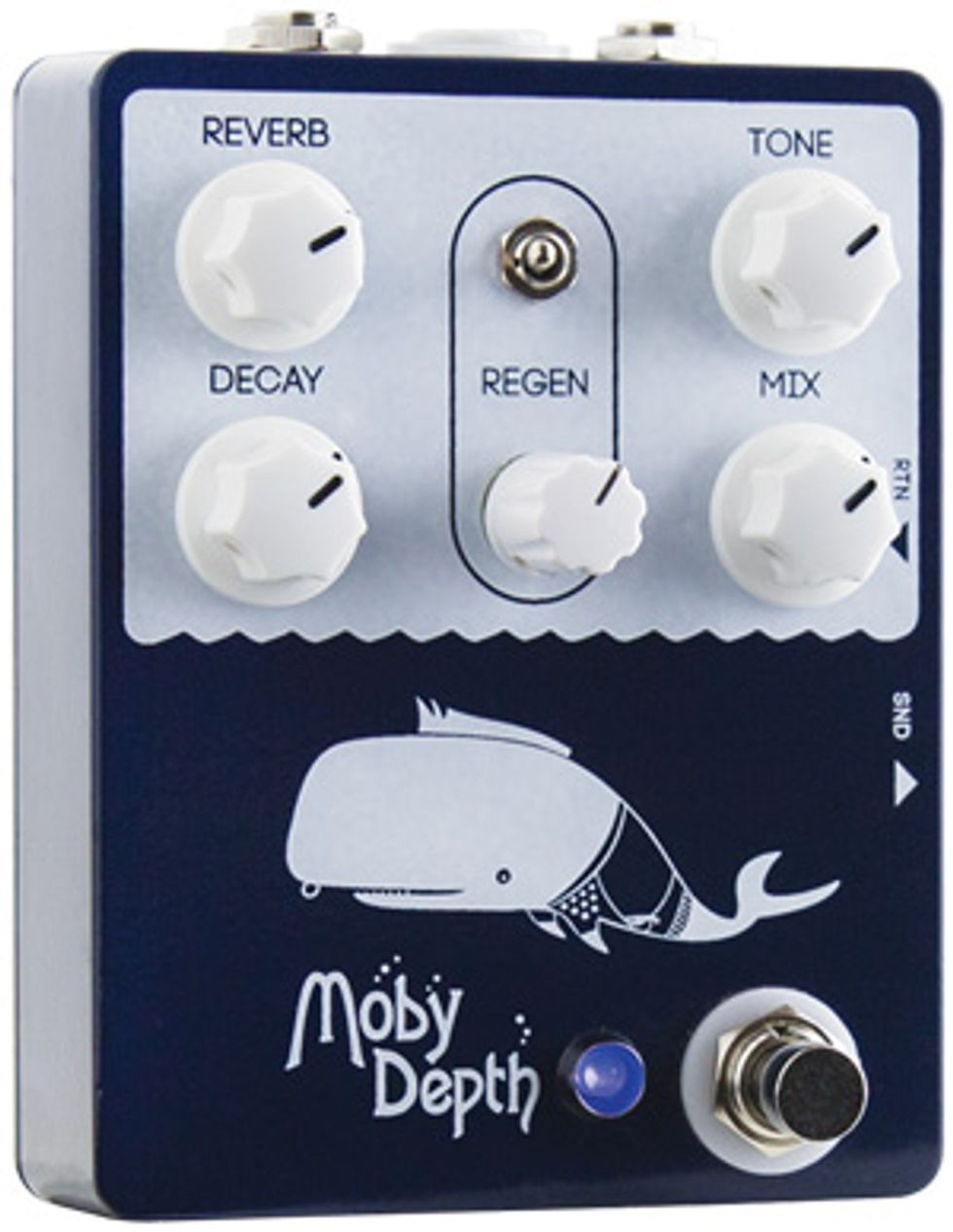
Built by Jean-René Gosselin in Montréal, Quebec, the Moby Depth spring-reverb emulator is driven by a Belton BTDR-3 chip and includes unusual features such as a side-loop for inserting a chain of effects that’ll only be heard when Moby is activated, and a regeneration circuit governed by a toggle and a single knob. Other controls: reverb level, decay, tone, and wet/dry mix knobs.
Although certain settings can make Moby sound more like a slapback echo, with the right mix and decay settings it yields a nice spring approximation that runs the gamut from subtle/traditional to insanely “underwater”—in short, offering much of what surf and outboard-reverb nuts crave. Gosselin’s design also deserves kudos for a carefully tuned tone knob that yields warmth or splashiness, minus the treble overload of many spring emulators with wide-ranging, hard-to-dial-in tone controls. And the bonus regen feature (essentially like a delay’s feedback function) adds psychedelic, lo-fi sound smudges that greatly expand Moby’s mojo.
Test gear: Baritone Jazzmaster with Seymour Duncan Antiquity I pickups, Jaguar HC50 with Weber Gray Wolf speaker
Clip 1 — Baritone Jazzmaster & Goodsell Valpreaux 21 - Reverb - Max, Tone - Noon, Decay - Max, Mix - 1 - 30, Regen - MaxClip 2 — Baritone Jazzmaster & Goodsell Valpreaux 21- Reverb - 1 O'clock, Tone - Min, Decay - Noon, Mix - Noon, Regen - Off
Ratings
Pros:
Compelling range of traditional to out-there spring-’verb tones. Cool regeneration circuit.
Cons:
Subtle pitch-modulation artifacts. Regen footswitch preferable over side loop. Large footprint.
Street:
$220
Jonny Rock Gear Moby Depth
jonnyrockgear.com
Tones:
Ease of Use:
Build/Design:
Value:







![Rig Rundown: Russian Circles’ Mike Sullivan [2025]](https://www.premierguitar.com/media-library/youtube.jpg?id=62303631&width=1245&height=700&quality=70&coordinates=0%2C0%2C0%2C0)







